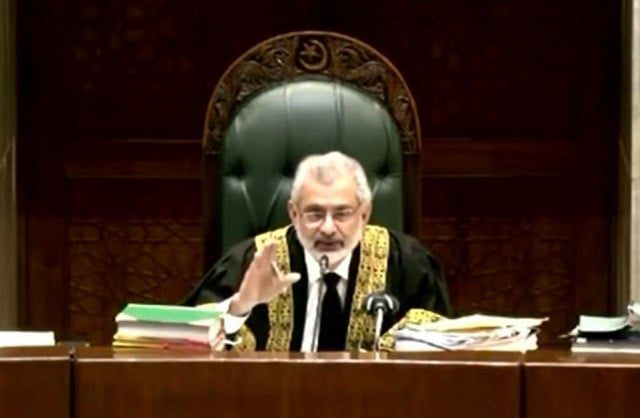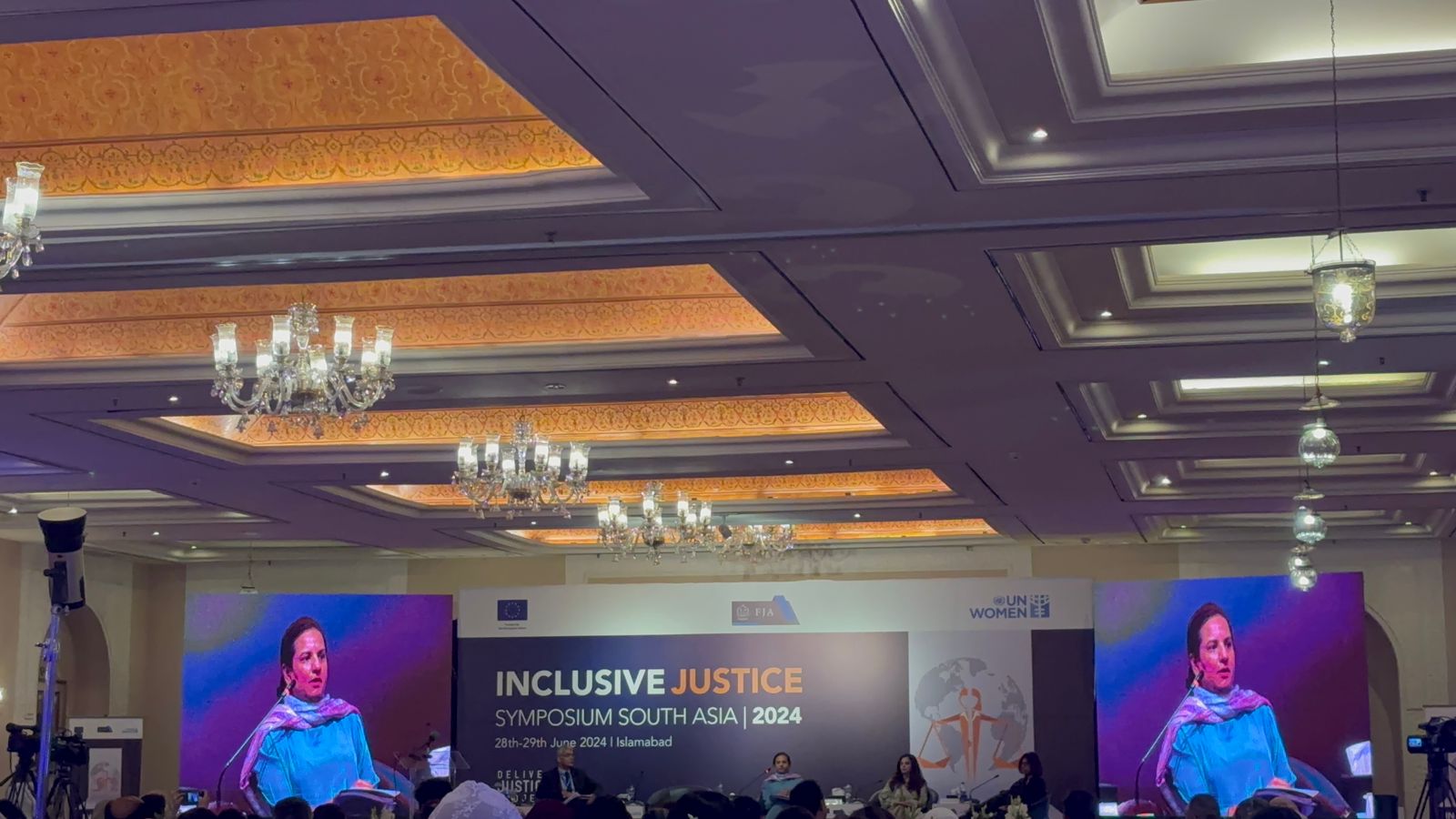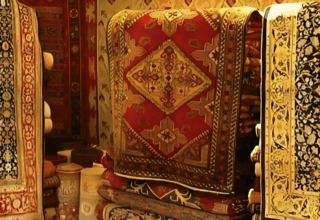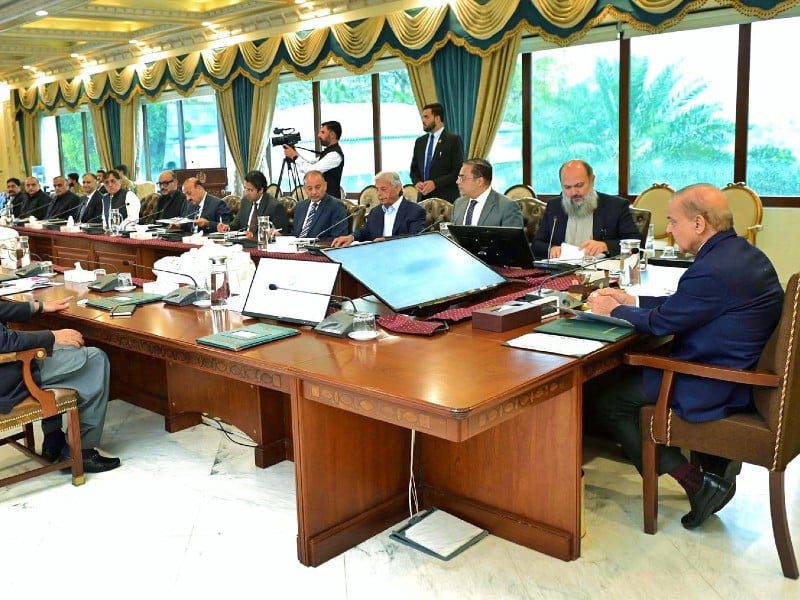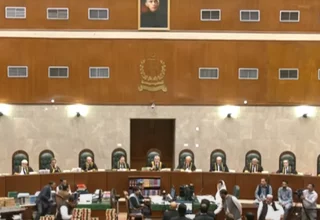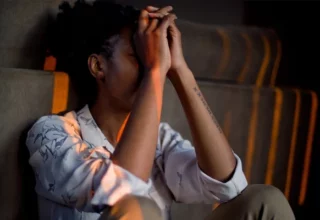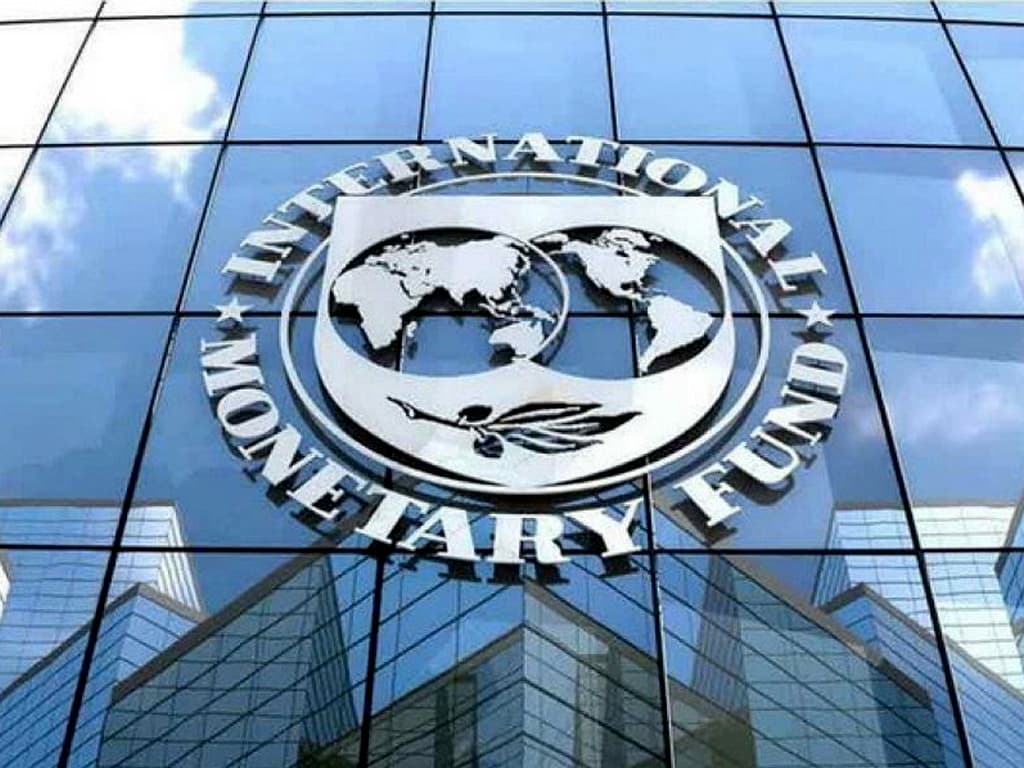For the first time in Pakistan’s history, apex court proceedings are being televised live on state television
The Supreme Court commenced the hearing on a set of petitions challenging the Supreme Court (Practice and Procedure) Act 2023 with newly sworn-in Chief Justice of Pakistan (CJP) Qazi Faez Isa convening a full court.
A full court comprises all 15 judges of the apex court. The hearing is being televised live on state television.
The full court comprises, Justice Sardar Tariq Masood, Justice Ijazul Ahsan, Justice Mansoor Ali Shah, Justice Muneeb Akhtar, Justice Yahya Afridi, Justice Aminuddin Khan, Justice Mazahar Ali Akbar Naqvi, Justice Jamal Khan Mandukhel, Justice Muhammad Ali Mazhar, Justice Ayesha Malik, Justice Athar Minallah, Justice Hasan Azhar Rizvi, Justice Shahid Waheed and Justice Musrat Hilali.

Before the hearing commenced today, the federal government urged the apex court to dismiss the pleas challenging the law, with Attorney General for Pakistan (AGP) Mansoor Usman Awan submitting a detailed reply for the same.
The government, in its reply, contended that the pleas were inadmissible.
At the outset of the hearing, CJP Isa said to the lawyers who had come to the rostrum that “appreciate that some of us have heard this matter before while some of us will hear it for the first time”.
“A question was raised whether I should be part of the bench…and then a related question was asked that all those who will become the chief justice should become part of the bench…I think the best way to resolve that was to constitute a full court,” said the CJP.
Arguments in the case started with Advocate Khawaja Tariq Rahim taking the rostrum. Soon after, Justice Ayesha asked the advocate what would happen to Section 5 in the event the law was upheld.
She said that there is a right of appeal that is provided under this law. “How do you visualise that right being exercised.” The chief justice asked Rahim to read the law out aloud, however, the lawyer kept losing focus and the judges repeatedly told him to read the law.
Rahim started reading the law, however, he again stopped and said, “Framing of these rules, under Article 191, is the prerogative of the SC. When they framed the 1980 rules, the entire court sat together and together they framed the rules.”
He added that the “intrusion of the parliament” in to the affairs of the SC prompted him to file the petition as he felt “every institution must remain in its domain”.
Justice Naqvi wondered if the advocate did not have any objection to unaccountable powers in one office.
Case history
In April, an eight-member larger bench, headed by then chief justice Umar Ata Bandial had suspended the Practice and Procedure Act, even before its enactment. Since then, some apex court judges have been saying that the case should be decided at the earliest, because of wide-ranging impact.
The Supreme Court Practice and Procedure Act has several objectives, including granting the authority to take suo motu notices and form apex court benches to a three-member committee, consisting of senior judges, including the chief justice. Currently, it is the sole authority of the chief justice.
The bill was passed by the National Assembly on March 29 and by the Senate on March 30. After which it was sent to President Dr Arif Alvi for his assent. However, Alvi refused to approve the bill and on April 8, he sent it back to parliament for reconsideration.
A joint session of parliament approved the bill as it was on April 10 and sent it back to the president for his approval. As per the law, any bill sent to the president for a second time would be enacted after 10 days even if the president did not sign it into law.
However, on April 13 – a week before its automatic enactment on April 20 — the Supreme Court stayed the enactment of the law. In the meanwhile, the National Assembly issued the notification of the bill becoming the law in the Gazette of Pakistan.
During the hearing of a case recently, Justice Mansoor Ali Shah had stressed the need for a decision in the Practice and Procedure Act case at the earliest, saying that if the court declared the act valid, then all the judgments given under suo motu jurisdiction might lose their significance.
According to legal experts, the case, after taking rounds of parliament, the Presidency and the Courtroom No 1, has now been placed before the entire Supreme Court, adding that the judgment in the case could impact the accountability law amendment case, the Supreme Court Review of Judgment and Orders case.
This is for the first time in over eight years that a full court has been formed. Previously, the full court was formed in 2015 on the 21st Constitutional Amendment case, which was meant to establish military courts for speedy trial of terrorists.
However, during these years, demands were made many a time for forming of the full court to hear political cases and the cases against parliamentary legalisation. However, the requests were declined as the concept of like-minded benches prevailed.
The legal experts also suggest that Chief Justice Qazi Faiz Isa had showed his seriousness about unifying the judiciary by forming the full court, as soon as he took oath of office. They added that now, all the judges would determine the fate of this legislation.


